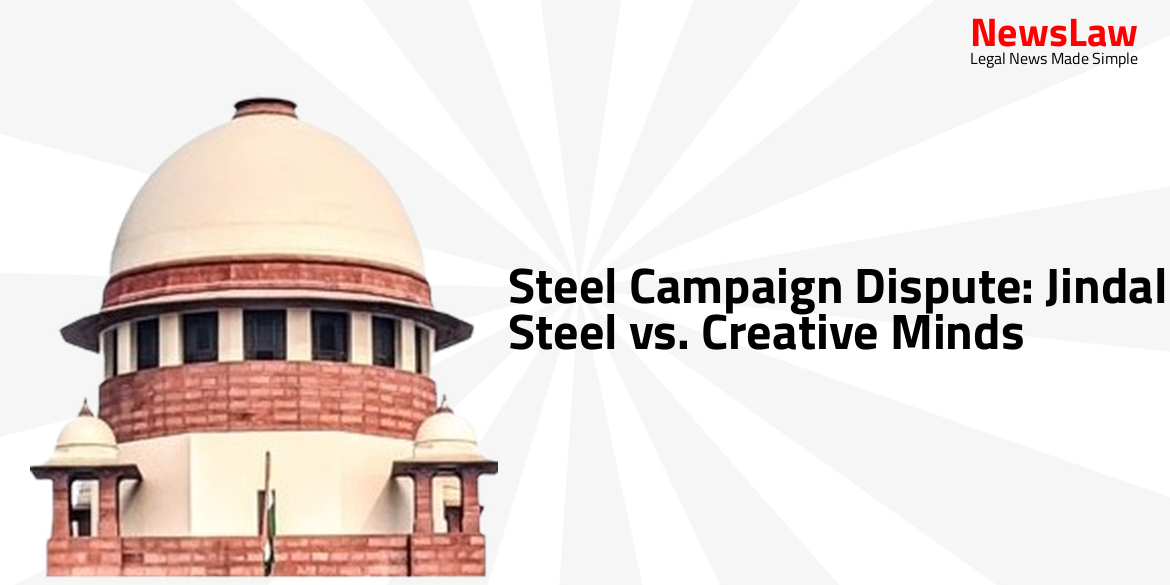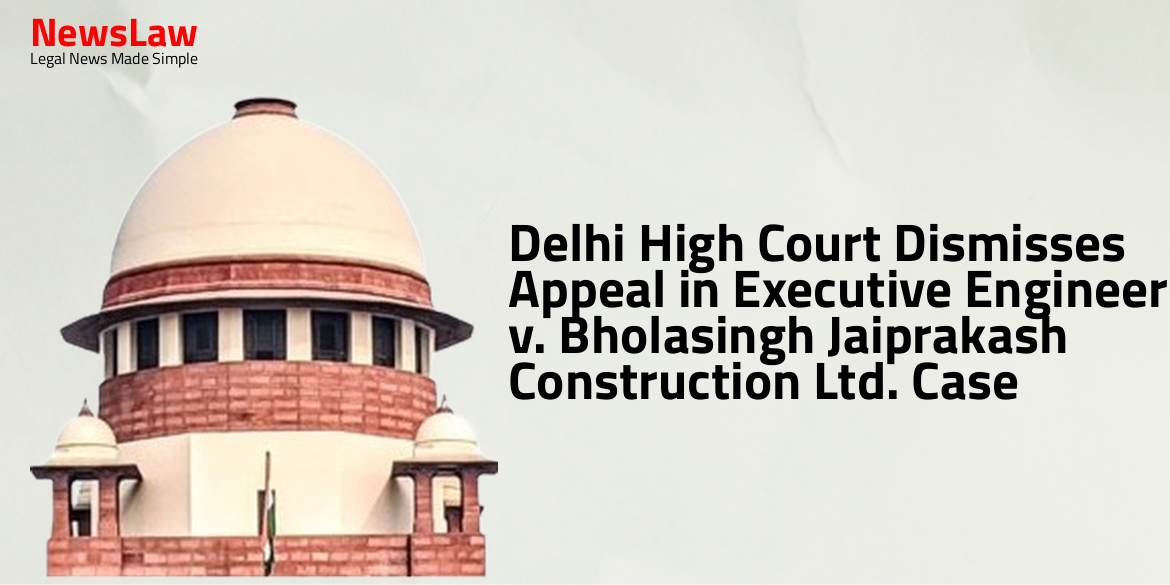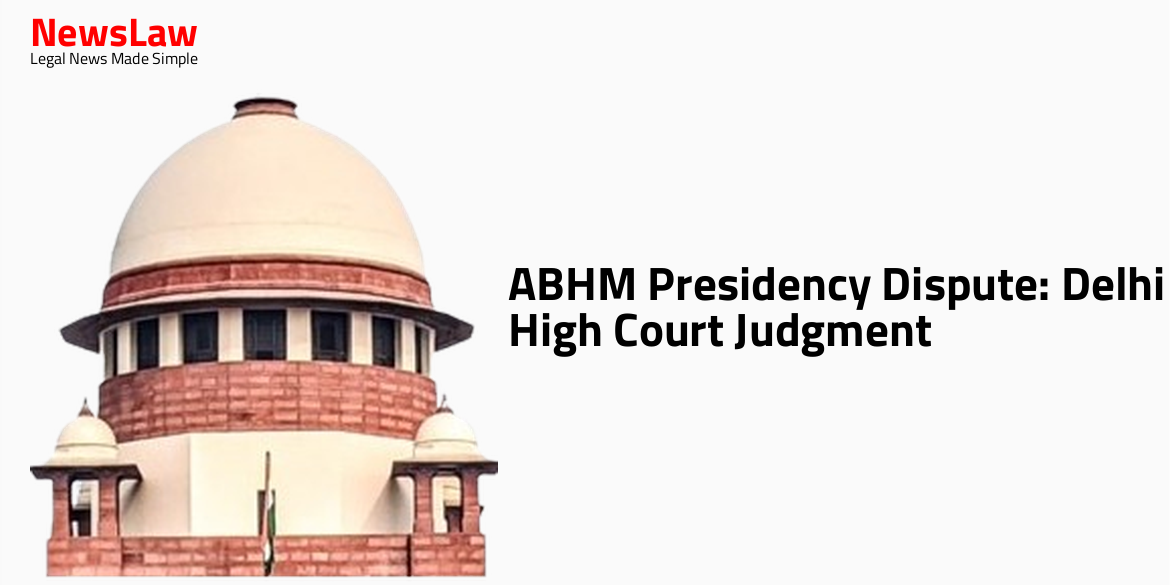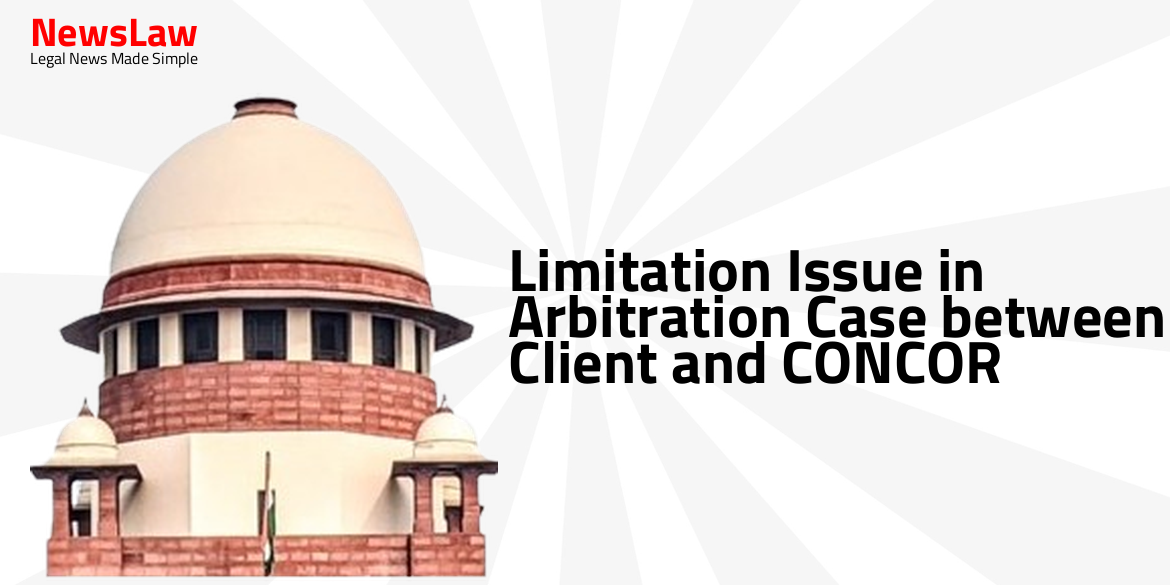Delve into the intriguing legal battle between Jindal Steel and Creative Minds regarding a steel campaign dispute that recently concluded in the Supreme Court. Learn about the complexities surrounding intellectual property rights and arbitration in this compelling case.
Facts
- Petitioner had successfully executed previous campaigns for ‘Steel of Oman’ and ‘Jindal Panther TMT Rebars’.
- The petition under Section 9 of the Arbitration & Conciliation Act, 1996, was referred to the Intellectual Property Division of the Court.
- Petitioner seeks restraint on the distribution and publication of the video titled ‘Jindal Steel – the Steel of India’ by the respondent during the arbitration proceedings.
- A Services Agreement was executed in April 2023 between the petitioner and respondent to develop a brand campaign highlighting the role of steel in India’s development.
- Petitioner claims to have experience in building major brands globally.
- Relief is sought to recognize petitioner as the original creator and copyright owner of the video.
- Restraining the respondent from disclosing petitioner’s confidential information and creating third-party rights in the intellectual property.
Arguments
- Petitioner asserts that all elements of the ad campaign were fleshed out under the Services Agreement, including script, narrative flow, montage video, screenplay, unique expressions, and musical themes.
- Petitioner provided respondent with considerable material, and respondent selected certain elements from the suggestions list.
- The sudden termination without reason or warning on 25 July 2023 was deemed dishonest and mala fide by petitioner, aiming to deprive them of copyright and fee under the Services Agreement.
- The question of respondent claiming copyright does not arise since they rejected the work, and payment was not dependent on deliverables as per clause 3.3 of the Services Agreement.
- Respondent expressed willingness to deposit Rs.50 lakhs before arbitration as a gesture of good faith.
- Total cost of billboards, digital screens, and static panels estimated at Rs. 16.35 crores.
- Respondent spent Rs. 11.88 crores on developing a new ad campaign.
- Impugned video launched on 14 March 2024 and had been live for 34 days as of 16 April 2024.
- 251 billboards, digital screens, and static panels hired across major cities for JSPL campaign.
- Counsel for petitioner objected to arbitrability referencing a past court decision.
- Respondent accused of terminating the contract midstream and reproducing substantial parts of petitioner’s work in a new campaign.
- Various advertising costs incurred by respondent for the campaign highlighted.
- Granting an injunction would cause irreparable prejudice to respondent.
- Petitioner issued a notice 19 days after the launch of the video.
Analysis
- The dispute arose under the Services Agreement executed between the parties with a dispute resolution clause.
- The parties were consistently collaborating to develop an ad campaign under the Services Agreement.
- The termination notice issued by the Respondent was abrupt and did not provide the required cure period as per the agreement.
- The launch of a new campaign by the Respondent seemed to be substantially based on a similar theme expressed through a montage, potentially infringing on copyright.
- Efforts at settlement post-termination did not bear fruit, leading to a cease-and-desist notice from the Petitioner.
- The Court did not wish to conduct a mini-trial on the infringement of copyright at this stage but noted the balance of convenience in favor of the Respondent.
- Documents indicated that no payments were made to the Petitioner as per the agreed terms post-termination.
- The Court noted various aspects related to potential infringement of copyright, leaving it to be determined by the sole arbitrator.
- Observations made were prima facie and based on the balance of convenience in the situation.
- The distinction between actions in personam and actions in rem is essential in determining arbitrability.
- Actions in personam, which determine the rights and interests of the parties themselves, are amenable to arbitration.
- Actions in rem, which determine title to property and rights of parties against all claimants, are not suitable for private arbitration.
- Disputes related to subordinate rights in personam from rights in rem are arbitrable.
- Example given by the Supreme Court: Rights under a patent license may be arbitrated, but the validity of the patent itself may not be arbitrable.
- A claim for infringement of copyright against a specific person is arbitrable, even though the arbitrator may need to examine the right to copyright, a right in rem.
- Intellectual property issues related to patents and trademarks are considered exclusive matters falling under the sovereign of government function and having erga omnes effect.
- The Supreme Court in Vidya Drolia clarified that while rights asserted in rem are not arbitrable, disputes over infringement of copyright against a particular individual can be arbitrated.
Decision
- The respondent is directed to deposit Rs. 59 lakhs with the Court within 2 weeks
- The parties are to approach the sole arbitrator within 2 weeks
- Initially, the respondent offered to pay Rs. 50 lakhs plus 18% GST but later revoked the offer and offered Rs. 25 lakhs inclusive of GST
- Hon’ble Ms. Justice (Retd.) Mukta Gupta is appointed as the sole arbitrator with consent of both parties
- The fee and expenses of the sole arbitrator shall be fixed by the sole arbitrator with consent of both parties
- The senior counsel for the respondent volunteered to make a deposit of Rs. 50 lakhs
- The deposit shall be kept in the form of an interest-bearing FDR initially for one year, subject to further directions of the sole arbitrator
- If the deposit is not made within 2 weeks, an ad interim injunction shall be imposed against the respondent regarding the impugned video
- The interim measures granted by the Court shall continue until varied, modified, or set aside by the sole arbitrator
- The petition is disposed of with these directions, and can be treated as an application under Section 17 of the A&C Act before the sole arbitrator
- Any pending applications are disposed of as infructuous
Case Title: WIEDEN+KENNEDY INDIA PRIVATE LIMITED Vs. JINDAL STEEL AND POWER LIMITED (2024:DHC:3220)
Case Number: O.M.P.(I) (COMM.)-109/2024



